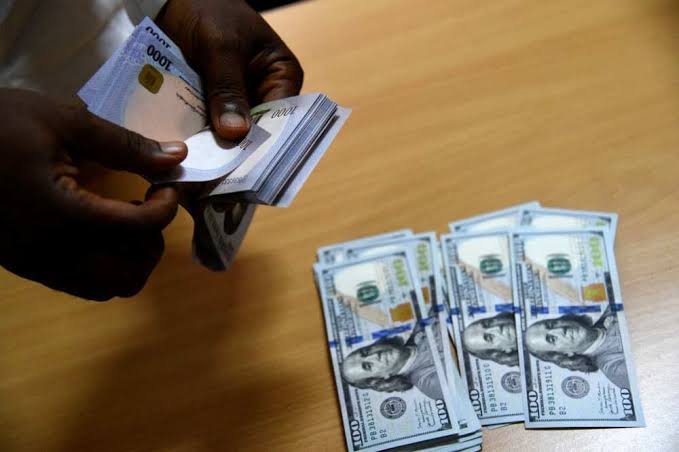Naira falls at parallel market, strengthens at official window

Oluwakemi Abimbola & Damilola Aina
The naira rose at the official window on Monday after Central Bank of Nigeria Governor Olayemi Cardoso told investors that the apex bank was working to address the currency’s volatility.
The local currency rose by 1.09 percent to close at 1,419.86/$ at the official forex window, according to FMDQ data.
On Friday, the dollar sold for $1,435.53.
Remember that the naira fell sharply to an all-time low of 1482.57 /$ at the official window last week Tuesday, defying efforts by the central bank and the federal government to increase liquidity in the foreign exchange market.
However, the local currency has recovered following a series of policy decisions by the CBN.
Meanwhile, the naira did not fair much better on the parallel market, trading between 1,440/$ and 1,460 after the close of business on Monday, according to Bureau de Change operators.
On Friday, the naira concluded trading at 1,450/$ on the alternative forex market.
Mr Abubakar Abdusallam, a BDC operator at the Sheraton Hotel in Abuja, told This Media that hoarders’ activities were causing the dollar to progressively gain ground against the naira.
“Today, we sell dollars at 1455/$ but we are buying at 1,445/$,” he said.
Another BDC operator, Surajo Sani, stated,
“Today, we traded dollars at the rate of N1,440 and that is the best I can do.”
Ibrahim on his part gave the highest rate, saying that he sold the dollar at the rate of 1,460.
“The dollar has got to 1,460 today. But it is still the same people that buy and hoard,” he stressed.
Earlier on Monday, Cardoso had said that the central bank had put in significant work to remove all the bottlenecks stifling the supply of FX into the country.
“We have addressed the challenges to remittance flows, reduced the ability of banks to hold on to positions, and more importantly, we now have the export proceeds from the national energy sector flowing back through the central bank. We have also initiated a number of short-term measures to make naira assets attractive to foreign investors.
“The eventual stability of the naira will be driven by our ability to address the fundamental issues affecting our economy; bring inflation under control and promote the growth of Nigerian businesses such that we eventually export much more than we consume as a nation.”
He added that the apex bank had settled verified FX requests amounting to $2.3bn, while N2.2bn was the outstanding FX obligation, which he said would be paid very shortly.
Cardoso disclosed that $2.4bn of the $7bn backlog he met when he got into office was contentious.
He said,
“We discovered that of the roughly $7bn, about $2.4bn had issues. We believed that they had no business being there. The infractions ranged from so many things.
For example, not having valid import documents and in some cases entities that did not exist and in some cases, account parties who had asked for foreign exchange and got more than they asked for and some that didn’t even ask for any and got. There were a whole load of infractions there.”
In September 2023, FTSE Russell, a subsidiary of the London Stock Exchange Group and a provider of market benchmarks and analytics, downgraded Nigeria from a “frontier” to an “unclassified” market over the difficulties that foreign investors have in repatriating their funds.
The central bank commenced the clearing of FX backlog in banks in November 2023.
